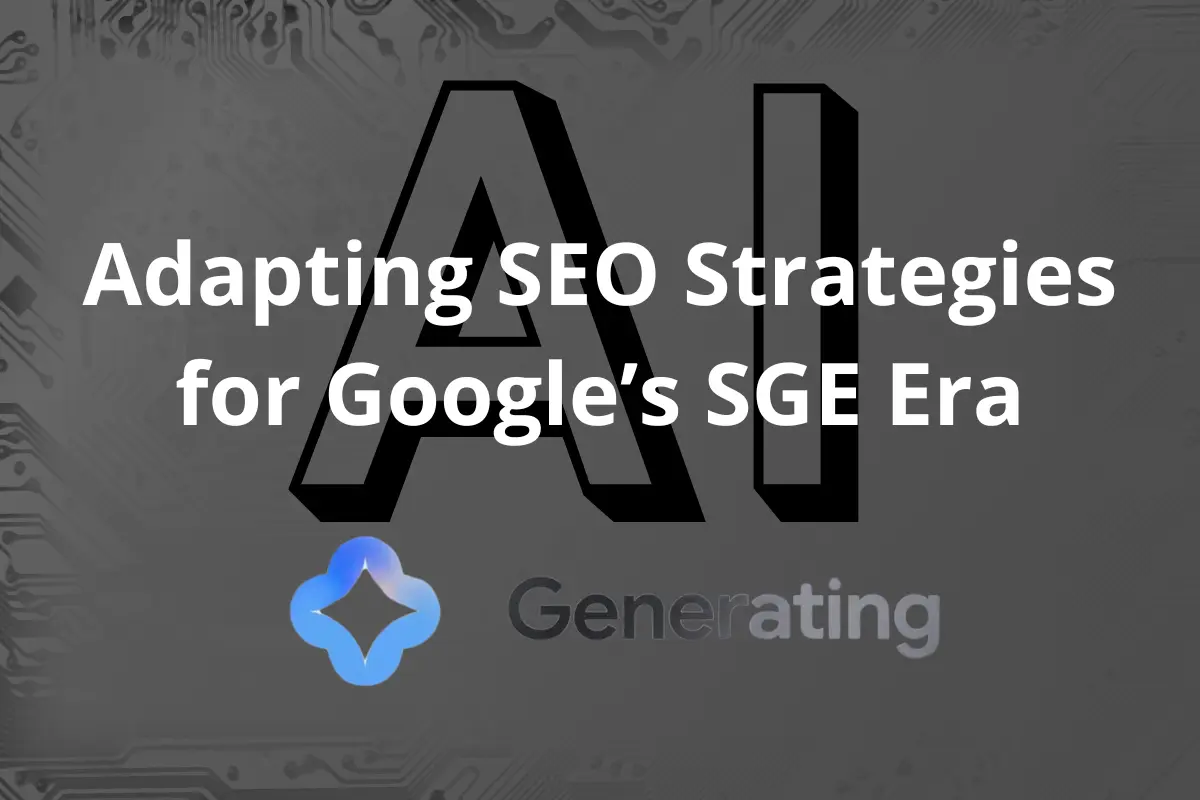Revolutionizing Search:
How Google's Search Generative Experience is Redefining SEO

Introduction to SGE
Google’s Search Generative Experience, or SGE, is a cutting-edge development in the world of search engines, blending generative AI with Google’s search capabilities. This evolution marks a significant shift from traditional search methods.
How SGE Works
Google filed a patent titled “Generative summaries for search results” on March 20, 2023, which likely outlines the foundation of SGE. SGE represents Google’s approach to incorporating generative AI into search, offering a user experience that slightly differs from existing AI-based search tools like Bing Chat.
Features of SGE
One notable feature of SGE is its ability to include links to webpages within AI-powered answers, indicated by down-arrow icons. This integration of generative AI with direct links to source material offers a unique blend of AI-generated content and traditional search results. Moreover, SGE has expanded its capabilities to generate images, aligning with other AI-generation tools but within a new experimental search interface. You can take SGE out for a spin here.
Impact of SGE on SEO
SEO in the Age of AI
The introduction of SGE heralds a new era for SEO professionals. Google’s mission has always been to organize and make information accessible. With the advent of SGE, there might be a shift in how SEO strategies need to adapt to AI-generated content and AI-influenced search results.
Adapting SEO Strategies
Digital marketers and SEO professionals need to understand how SGE interprets and generates content. This knowledge is crucial for optimizing content in a way that aligns with SGE’s AI-driven mechanisms.
I suggest that you do more than focus on keywords in your content, and ensure that there is content focused on your keywords.
- Creating content that is contextually rich and well-structured will be more effectively interpreted by LLMs and provide better results in these generated summaries.
- Also consider focusing more on conversational, answer-focused content that aligns with the AI’s understanding and response patterns.
Potential Challenges
One of the challenges could be the unpredictability of AI-generated content. SEO strategies that relied heavily on keyword density and traditional search algorithms might need to evolve to stay effective in the SGE-dominated search landscape.
To combat this, you might try asking one or more LLMs to evaluate your content for a particular search term you are targeting and see what kind of result you get. I’ve had mixed results with this, needing to ask ChatGPT at least twice if the article is about [keyword], before it would give me a succinct answer.
You can also ask the LLM how to better represent that phrase in your article. I’ve had much better luck with this approach. I use a simple prompt “how could I better represent the keyword [keyword] in this article?”
Conclusion: Embracing the Future
SGE represents a significant step forward in search technology. As Google continues to refine and expand its capabilities, I cannot stress enough that digital marketers need to stay informed and adapt their strategies accordingly.
The shift this represents towards AI-driven search is not just a trend but a glimpse into the future of digital information retrieval and utilization.

